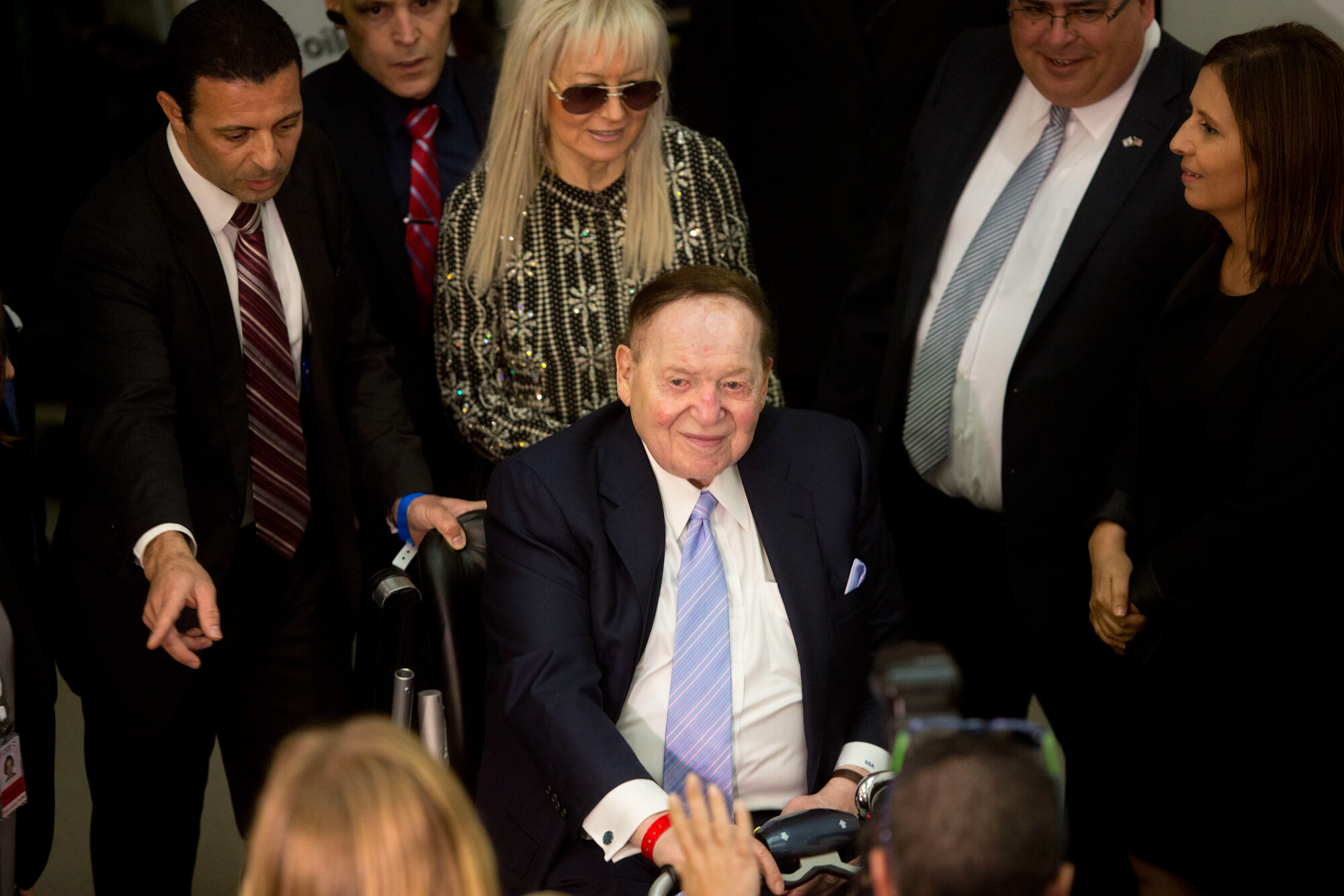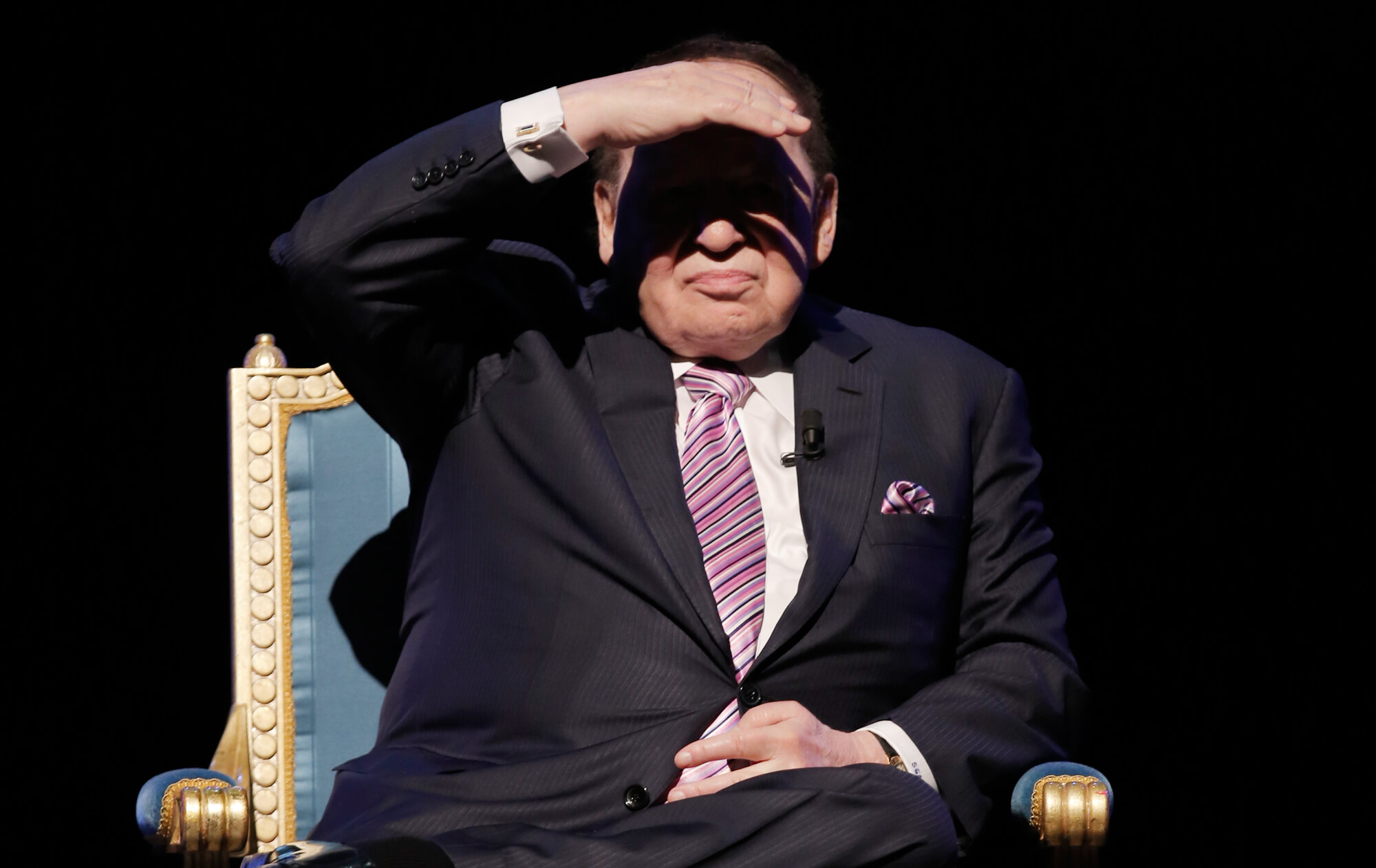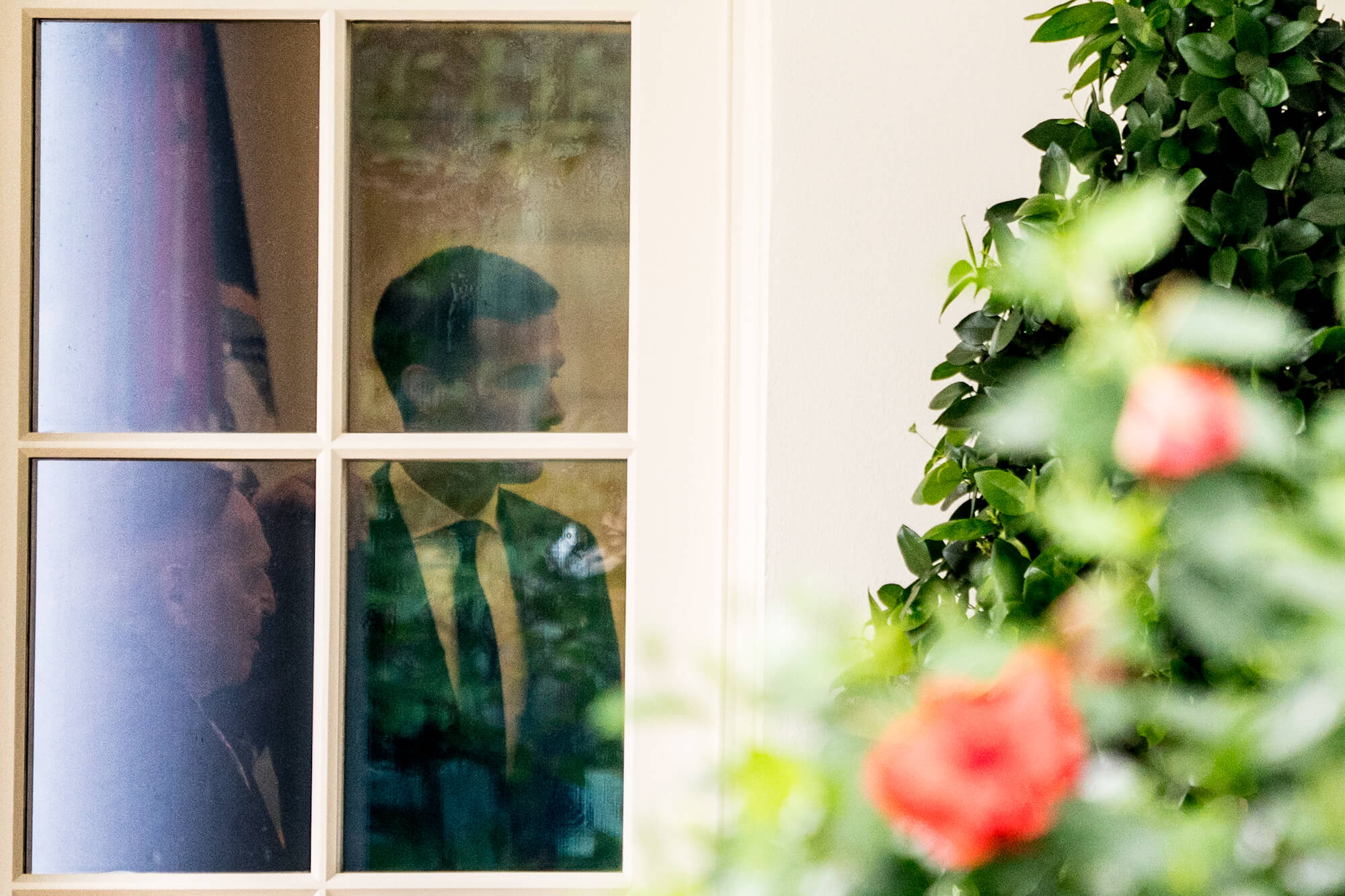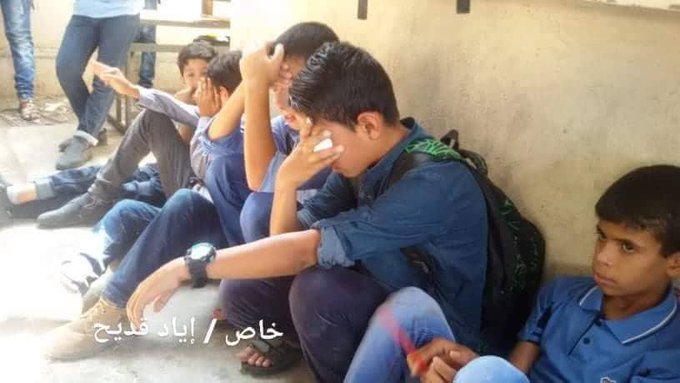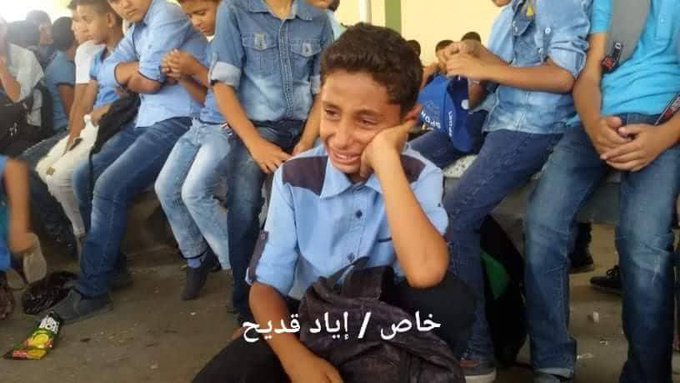In Syria, schools welcome children frozen out of education by jihadis
Idlib province's Sinjar had its school shut down by al-Qaeda-linked rebels.
Now its children are flooding back to classrooms
Topics:
Opinion
Show comments
SINJAR, Syria - The children of Syria’s Sinjar will remember their return to school this September for the rest of their lives.
Education ceased totally when this traumatised market town in northern Idlib province was overrun by jihadi rebels in 2014. Many families fled. Those who remained found themselves trapped in a nightmare.
Parents had the option of keeping their children hidden at home - or being taken away and indoctrinated by jihadis. Girls were covered up, while their mothers could not walk down the street.
Yet when I arrived at recently liberated Sinjar Elementary School this week, I found the headmaster, Mohamad Hussein, hard at work. He was busy painting a new sign in front of his school. It read in Arabic: “Sinjar Elementary School”.
At the start of 2018, when pro-Syrian government forces captured the town, this building was an arms dump.
There is still restoration work to be done, and I was told mortars still strike the town. But life is returning to normal after almost five years of pure, unadulterated horror.
The headmaster took me into a room where an alert, motivated, mixed class of about 25 children spoke to me of their dreams of becoming doctors, engineers and teachers.
Hussein looked older than his 47 years, and no wonder. This brave and softly spoken man has – like everybody else in in this tragic town - endured fear and suffering on a scale far beyond ordinary human comprehension.
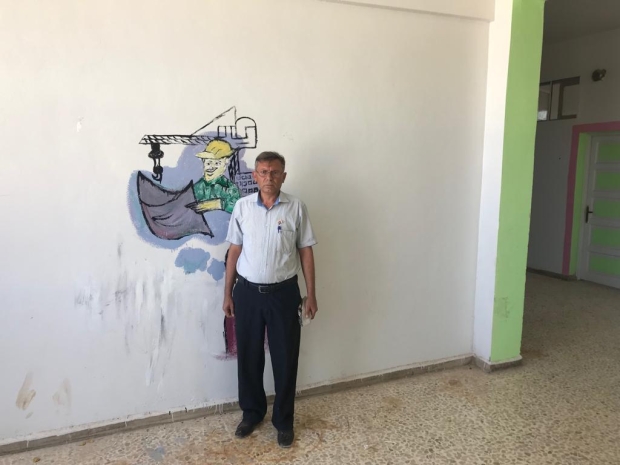 Headmaster Mohamad Hussein in his school in Syria's Sinjar. (MEE/Peter Oborne)
Headmaster Mohamad Hussein in his school in Syria's Sinjar. (MEE/Peter Oborne)
Educated in Arabic language at Aleppo University 25 years ago, nothing prepared him, or his fellow teachers, for the horror of civil war.
He was given the choice of closing his school or being killed. Then he was confined to his house while the school buildings were converted into an arsenal. Even though he was prohibited from teaching, the Syrian education ministry continued to pay him.
Numbers of students in his school are down to 178 today from 600 when it closed five years ago. Some have fled to Turkey, Europe or elsewhere in Syria, while others have been killed.
Brutul rule
Hussain told me how an emir, known as al-Yemeni, had forced inhabitants of Sinjar to watch regular public beheadings, which took place on a railway line 150 meters from the school.
We walked up the road to inspect, and found the blade used for the executions lying on the ground by a lamppost. It was painted red, and when I ran my thumb tentatively along the blade, it was razor sharp.
Locals said there had been around 80 public beheadings. They pointed to a building 50 meters away. According to the town’s residents, the building had been a women-only market, until more than 100 were killed by a suicide attack early in the war.
I was told that people targeted for execution included those who aroused the suspicion or anger of jihadis, such as relatives of those working for the government, or for the army.
They teach them not to obey their father and mother. They tell them that the first thing to think about is how to kill other Muslims- Mohamad Hussein, headmaster
The headmaster said that jihadis banned state education but “took the children to the mosques by force”.
“They grow in their minds to kill and give them drugs. They want to wash their minds,” Hussain said. “They teach them not to obey their father and mother. They tell them that the first thing to think about is how to kill other Muslims.”
Hussain said that he taught his own four children at home during the rebel occupation, and fended off pressure to send them to Islamist schools.
The Syrian army retook Sinjar from al-Qaeda-linked rebels - once known as the Nusra Front, now more commonly as Hay'at Tahrir al-Sham - six months ago. Parents told me how they too had self-taught their children.
Yousef Ochda, an electrician, said he educated his two sons, now aged eight and seven, at home: “Now is the first months they are gone out. They are really happy.”
He recalled how his wife was forced to wear a burka and how he was pressurised many times to join rebel militias. “I told them I don’t have anything to do with politics.”
Other parents talked of their fear of Islamic courts. “Sometimes they put me in jail just for having a cigarette,” said one survivor.
Another showed me the deep scars on his leg after being hung upside down by chains for 24 hours. He said his son had been beheaded because his mother was an Alawite, the sect of President Bashar al-Assad.
Sweeping changes
At the end of a year in which the army has won back a great deal of territory, across Syria the education system is changing hands.
I went to a girls’ secondary school in the town of Douma, a suburb of Damascus in the Eastern Ghouta, which was returned to government control back in March. To reach the school we passed through scenes of utter devastation that bore testament to the scale and brutality of recent fighting.
READ MORE►
The 35-year-old headmistress, who wished not to be named, told me her school had continued to operate under the control of Saudi-backed rebel group Jaish al-Islam, which held Douma.
But not normally. Her students, all between 13 and 16 years old, were forced to wear the hijab and banned from clapping their hands and taking public exams. Lessons in music, art and sport were banned.
Outside the headmistress’s office was the entrance to one of the many deep tunnels dug by fighters in order to avoid detection and protect them from attack. She said that she had refused offers from Jaish al-Islam to double her modest government salary if she agreed to teach at its own Islamist schools.
“Jaish al-Islam hated us. We are just small ladies teaching. They don’t want us to go into Damascus to collect our salary,” she said.
 Syrian students from the former rebel held area of Eastern Ghouta arrive to attend class at a school in Kafr Batna on 5 September, 2018. (AFP)
Syrian students from the former rebel held area of Eastern Ghouta arrive to attend class at a school in Kafr Batna on 5 September, 2018. (AFP)
The Syrian national curriculum is strikingly similar to the western model, teaching maths, science, history, languages, art, music and Islamic studies. There are many reports of how rebel groups have sought either to Islamicise the state curriculum or abolish it altogether, as in Sinjar.
On my visit to liberated areas of Syria I was accompanied by a regime minder. These areas are still under close military control, and soldiers were often present as I spoke to parents and teachers.
I was unable for safety reasons to visit rebel areas, and witness the devastation caused by the government, or hear accounts of daily life from those living there.
Nevertheless I believe that the testimony I heard this week in Syria is authentic, and that for many Syrian children the army’s advance has given them the chance to resume schooling after five long-lost years.
- Peter Oborne won best commentary/blogging in 2017 and was named freelancer of the year in 2016 at the Online Media Awards for articles he wrote for Middle East Eye. He also was British Press Awards Columnist of the Year 2013. He resigned as chief political columnist of the Daily Telegraph in 2015. His books include The Triumph of the Political Class, The Rise of Political Lying, and Why the West is Wrong about Nuclear Iran.
Photo: Girls walk through a damaged corridor inside a school in the town of Douma, easternGhouta in Damascus, Syria 24 May, 2016. (Reuters)
https://www.middleeasteye.net/columns/syria-schools-welcome-children-frozen-out-education-hardliners-713682734


